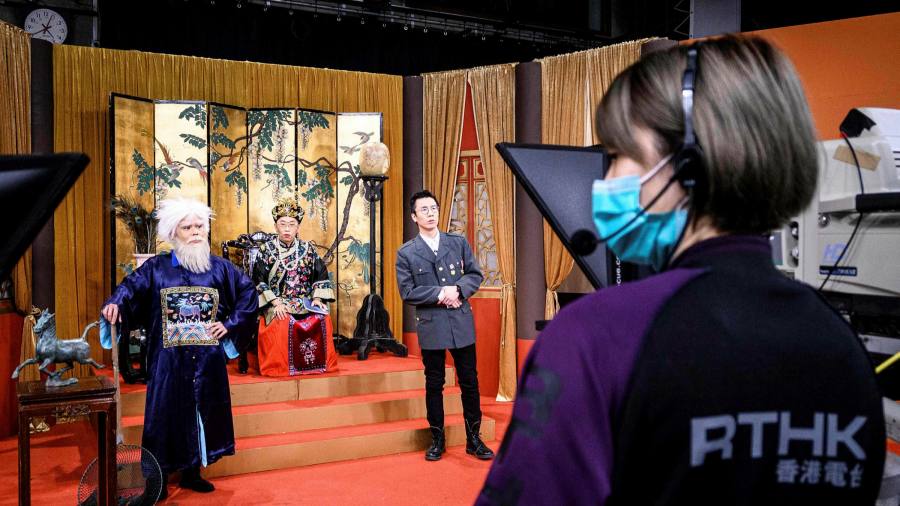[ad_1]
Hong Kong authorities have ordered sweeping changes to the city’s public broadcaster, a move denounced by critics as the latest step in a crackdown on freedom of expression in the territory.
Radio Television Hong Kong, a 92-year-old institution modelled on the BBC, has been under attack by pro-Beijing groups and Chinese state media since pro-democracy protests in the city in 2019. The broadcaster has been accused of biased coverage of the protests and of Beijing’s imposition of a controversial national security law on the territory last year.
The law, which contains vaguely defined offences such as secession and subversion, has led to a dramatic narrowing of civic freedoms. Teachers have been disqualified, a national security curriculum has been introduced in schools and an RTHK journalist was arrested after reporting on allegations that police failed to protect civilians from a mob attack.
The changes announced on Friday included the replacement of Leung Ka-wing, a veteran journalist who has led RTHK for more than five years, by Patrick Li, a longtime civil servant with no journalistic experience. The government said Li was appointed after it was unable to find an internal candidate with a broadcast background.
The government also called for better internal controls and oversight of the RTHK’s output.
Grace Leung, a lecturer at the Chinese University of Hong Kong’s School of Journalism and Communication, said the move undermined the broadcaster’s autonomy. “They are going to tighten the editorial independence of RTHK to make it more loyal to the government’s expectations so it will become a government department rather than a public broadcaster,†she said.Â
Edward Yau, secretary for commerce and economic development, dismissed concerns that Li’s experience did not prepare him for the role. “A lot of recommendations were of a management nature which might better suit someone with an administrative background,†he said.
RTHK is one of the city’s few media outlets not owned by a pro-establishment business family. The editorial charter of the government-funded station defines its mission as to “provide timely, impartial coverage of local, national and global events and issuesâ€.
But in a sign of the increased pressure on the broadcaster, Leung ordered RTHK to halt evening broadcasts of BBC World News this month, hours after Beijing banned the channel from being broadcast in mainland China.
RTHK’s journalists have also had to submit to the government’s new loyalty oaths, which are required of all civil servants.
Critics said the media crackdown contravened the “one country, two systems†framework under which Hong Kong was guaranteed a high degree of autonomy from Beijing for 50 years after its 1997 handover from British to Chinese sovereignty.
Hong Kong has long been a beacon for press freedom in Asia, but the media has faced increasing restrictions in the territory in recent years. Victor Mallet, a Financial Times journalist, was denied a work visa in 2018 after chairing a discussion at the city’s Foreign Correspondents’ Club with the leader of a pro-independence political party. Beijing also decreed that a number of US journalists would be unable to work in Hong Kong after they were forced to leave mainland China.
[ad_2]
Source link





